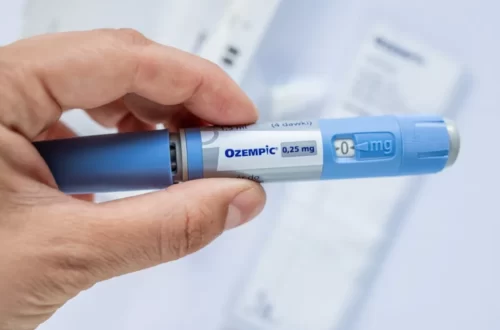
How to Sleep After Wisdom Teeth Removal – Pain Relief
You can sleep after having your wisdom teeth removed if you take the proper precautions. We will go over how to get the rest you require while recovering from a tooth extraction in this article.
The most frequent dental procedure in the United States is the extraction of wisdom teeth. Between the ages of 16 and 21, it accounts for approximately 95% of tooth extractions among those with insurance. If your wisdom teeth are currently causing dental issues or if you think they might in the future, your dentist may advise having them removed.
How to Sleep After Wisdom Teeth Removal
Take Your Pain Medication
You might experience some pain when your anesthesia wears off, and any discomfort can make it difficult for you to fall asleep. Try not to be tough about it. Instead, prepare for a restful night’s sleep by taking your painkillers as prescribed by your oral surgeon.
Choose the Right Position
The tooth extraction site may ooze during the initial stages of healing. As a result, it’s best to sleep on your side, at least the first night. Additionally, you run the risk of experiencing more swelling if you lie flat on your back. That might exacerbate your discomfort and make it more difficult for you to relax.
Elevate Your Head
You must elevate your head for the first few nights after having your wisdom teeth removed. When you’re sleeping on your side, just one pillow should be enough. Pile some pillows behind you for support and lean back if you’re having trouble falling asleep in that position.
Follow Your Aftercare Instructions
You must follow the aftercare recommendations given by your oral surgeon if you want the best chance of sleeping through the night comfortably. Take good care of yourself when you’re recovering from wisdom teeth extraction, and you’ll have a smoother and easier recovery experience.
To pave the way for a night of restful sleep, follow these guidelines:
- Apply ice and heat as directed until the time you go to bed
- Keep your physical activity to a bare minimum
- Stay hydrated, but don’t drink from a straw
- Don’t smoke or use tobacco in any form
- Satisfy your appetite before hitting the sack – try milk, fruit smoothies, low-sodium broth or nutritional supplement drinks
Read More: What to Do Before Wisdom Teeth Removal
There might be other suggestions from your oral surgeon. You shouldn’t have much of a problem sleeping after having your wisdom teeth removed if you follow their advice.
Schedule a consultation at Richmond Oral and Maxillofacial Surgery if you live in Wayne Township, Wayne County, or the nearby east central Indiana region and are concerned about your recovery after wisdom tooth removal.
Read More:
- Simple Ways to Sleep with a Stomach Ulcer
- Can You Sleep with a Tampon In
- Best Way to Sleep with Occipital Neuralgia.
- How to Sleep with a UTI

What to Avoid When Sleeping After Wisdom Teeth Removal
When recovering from a wisdom tooth extraction, it’s crucial to take precautions not to disturb the blood clots that are developing in your wounds, especially in the first 24 hours. A condition known as dry socket can be brought on by a blood clot that has dislodged or has formed improperly. This can happen on days 3 to 5 after wisdom tooth removal and is one of the most frequent complications.
To minimize your risk of complications, it’s a good idea to avoid the following habits:
- sleeping flat on your back. For accelerating injury recovery, the RICE protocol—rest, ice, compression, and elevation—is frequently suggested. When you are sleeping, elevate and support your head with one or two extra pillows.
- Your wounds are being brushed. To prevent your blood clot from being disturbed, it is advisable to refrain from brushing for at least the first 24 hours after your surgery.
- Staying up late. In order to give your body the time it needs to heal, it’s crucial to get plenty of sleep.
- drinking alcohol or smoking. Both alcohol and tobacco can obstruct your body’s natural ability to heal. These activities should be avoided for at least 24 hours following surgery, ideally until you are fully recovered.
Is It OK to Sleep on Your Side After Wisdom Teeth Removal?
It is advised against sleeping on your side because the pressure it places on your cheeks could make bleeding more likely. Additionally, make sure you’re sleeping with your head elevated using a few pillows as this can help divert blood from your gums and lessen the amount of bleeding you experience. Ideally, applying a cold compress before bed can also aid in lowering the likelihood of bleeding while you sleep.
If you have only had one wisdom tooth removed and must sleep on your side, you can try to do so on the side that wasn’t affected. This isn’t the best scenario, though, as you could unintentionally toss and turn while you sleep, causing you to sleep on the side that is bothering you and putting pressure on your gums and teeth.
When you awaken, it’s important to rinse your mouth with warm water and look for any signs of infection or excessive swelling where the tooth was extracted. It’s important to get in touch with your oral surgeon as soon as you notice anything unusual.
Should You Sleep With Gauze After Wisdom Teeth Removal?
By applying slight pressure to your wound, gauze serves to assist your body in clotting the wound. Due to the risk of choking, gauze should never be placed in your mouth while you are sleeping.
Additionally, it’s crucial to watch out for nodding off while lying down with gauze in your mouth, especially if you’re taking medications that might make you drowsy.
FAQs on Wisdom Tooth Removal:
Can I Sleep on My Side After Wisdom Tooth Removal?
After having your wisdom teeth removed, you should refrain from sleeping on your side for a few days. To stop the bleeding, it is advised to sleep upright. Keep your head elevated as well to lessen bleeding and swelling.
How Long Do I Have to Sleep Elevated After Wisdom Tooth Removal?
For the first and second days following surgery, elevated sleeping is advised. For at least 72 hours or until the bleeding has stopped, sleep with your head elevated.
What to Eat After Wisdom Teeth Removal
Generally, you’ll want to stick to liquids and soft, mushy foods for 3 to 5 days, including:
- Blended soups (easy to eat, nutrient-rich and hydrating)
- Broths (full of essential vitamins and minerals to aid recovery)
- Yogurt.
- Pudding.
- Smoothies.
- Potatoes (mashed, sweet or regular)
- Apple sauce.
- Fruit pureed without seeds.
Can I Sleep on My Stomach After Wisdom Teeth Removal
After having their wisdom teeth removed, patients are advised by Mayo Clinic medical professionals to sleep on their backs.





Average Rating